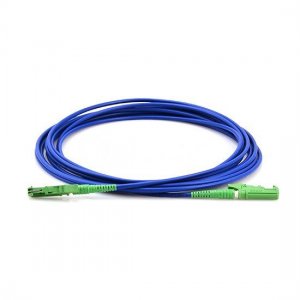
# Armored Fiber Optic Cable: Durability and Protection for High-Performance Networks
## Introduction to Armored Fiber Optic Cables
In today’s fast-paced digital world, reliable and robust network infrastructure is essential. Armored fiber optic cables have emerged as a critical solution for environments where standard fiber cables may be vulnerable to damage. These specialized cables combine the high-speed data transmission capabilities of traditional fiber optics with enhanced physical protection.
## What Makes Armored Fiber Cables Different?
Armored fiber cables feature an additional protective layer that shields the delicate glass fibers inside. This armor typically consists of:
– Interlocking metal (usually steel or aluminum)
– Corrugated steel tape
– Dielectric materials for non-conductive options
The armor provides superior protection against:
– Crushing forces
– Rodent damage
– Moisture and environmental factors
– Accidental impacts during installation or maintenance
## Key Benefits of Armored Fiber Optic Cables
### 1. Enhanced Durability
The primary advantage of armored cables is their exceptional durability. They can withstand harsh conditions that would damage standard fiber cables, making them ideal for:
– Industrial environments
– Outdoor installations
– Underground deployments
– Areas with high rodent activity
### 2. Long-Term Cost Savings
While armored cables may have a higher initial cost, their extended lifespan and reduced maintenance requirements often result in significant long-term savings. The reduced risk of damage means fewer service interruptions and lower repair costs.
### 3. Flexible Installation Options
Modern armored fiber cables maintain flexibility despite their protective layers, allowing for:
– Direct burial without conduit
– Aerial installations
– Indoor routing in high-traffic areas
– Use in conduit when additional protection is desired
## Applications of Armored Fiber Optic Cables
### Military and Defense
Armored cables are extensively used in military applications where reliability under extreme conditions is paramount. They provide secure communications in:
– Battlefield environments
– Naval vessels
– Mobile command centers
### Industrial Networks
Manufacturing plants and industrial facilities benefit from armored cables that can withstand:
– Heavy machinery vibrations
– Chemical exposure
– Extreme temperatures
### Telecommunications Infrastructure
Telecom providers use armored cables for:
– Last-mile connections
– Underground trunk lines
– Cross-country backbone networks
## Choosing the Right Armored Fiber Cable
When selecting an armored fiber optic cable, consider these factors:
– Environmental conditions (temperature, moisture, chemical exposure)
– Required bandwidth and transmission distance
– Installation method (direct burial, aerial, conduit)
– Need for conductive vs. non-conductive armor
– Compliance with industry standards and regulations
## Installation Best Practices
Proper installation ensures optimal performance and longevity:
– Always follow manufacturer’s bend radius specifications
– Use appropriate pulling techniques to avoid damaging the cable
– Properly ground conductive armored cables
– Seal cable ends during installation to prevent moisture ingress
– Consider using cable lubricants for difficult pulls
## Future of Armored Fiber Technology
As network demands grow, armored fiber technology continues to evolve:
– Development of lighter, more flexible armor materials
– Integration with higher-count fiber configurations
Keyword: armored fiber cable
– Improved moisture-blocking technologies
– Enhanced fire-resistant properties for critical applications
Armored fiber optic cables represent a smart investment for any organization that values network reliability and longevity. By providing superior protection without compromising performance, these cables ensure that high-speed data transmission remains uninterrupted even in the most challenging environments.